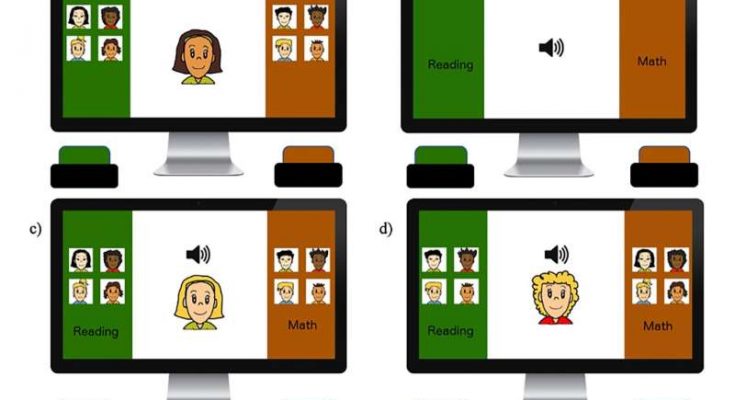A team of psychology researchers from the University of Amsterdam, Western Washington University, the University of British Columbia and the University of Toronto, has found that reading books to children that have female characters working with math to solve problems reduces stereotypes that have been found to turn women away from interest in STEM careers. The group has written a paper describing experiments they conducted that involved reading to children and what they learned by doing so and have posted it on the open access site PLOS ONE.
Despite a push to find a way to counter stereotypes that lead to lower enrollment of women in STEM classes—which results in fewer women working in science, technology, engineering and math careers—enrollment levels remain low. In this new effort, the researchers wondered if children who were read books (or read them themselves) that portrayed female characters having an interest in and excelling in pursuits that involved math and science, might have fewer stereotypical views regarding such subjects. To find out, they designed and carried out a simple experiment.
The experiment consisted of reading books to children between the ages of 6 and 11 and then asking them to take a test that measured gender-based stereotypical thinking. In all, the researchers read to over 300 children. The researchers used three different books: the first involved a young male character performing well in math; the second involved a young female character performing well in math; and the third was meant to be neutral, involving characters of either gender who were interested in various sports.
The testing given to each child, after they listened to one of the three books, involved sorting math and implicit terms into gender-based categories. The children were also asked to answer more direct questions, such as how much did they like doing math problems.
In looking at their data, the researchers found that all of the children, regardless of gender, tended to hold less gendered stereotypes regarding women and their interest and ability to work with math, compared to the control group, after listening to the book about the female character doing well in math. The researchers suggest their findings indicate that gendered stereotypical thinking in young people is malleable, which indicates that it can be changed if material is given to them that challenges the status quo.
#Children; #Education; #Gendersterotypes




